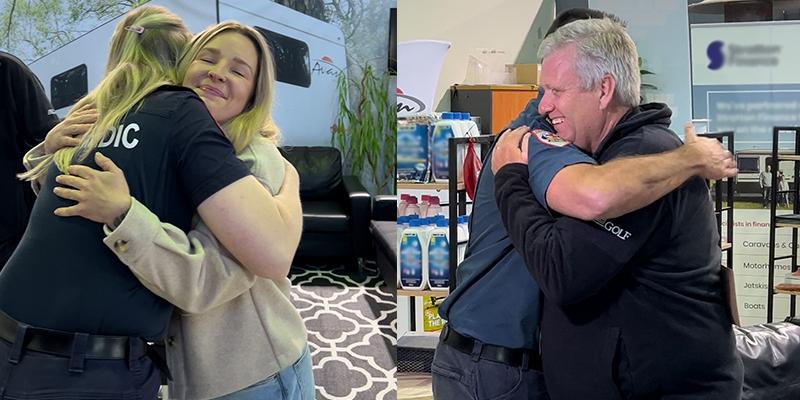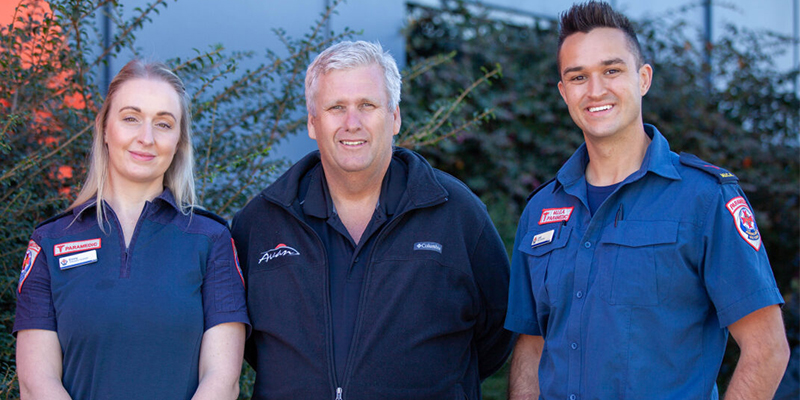A Pakenham grandfather is lucky to be alive after suffering an asthma-induced cardiac arrest in November last year.
Fifty-six-year-old Jeff Van Baardwyk was feeling unwell at work and so began the short drive home when he realised his condition was worsening and called Triple Zero (000).
“I knew something wasn’t right and made the decision to call thinking I would be in the back of an ambulance for a bit then back at work the same day,” Jeff said.
“When I arrived home, I knew things were going downhill. I was struggling to breathe and waiting on the ambulance to arrive.”

A heartful hug between Jeff’s daughter Jayde and Paramedic Emmy (left). Jeff thanking Paramedic Josh (right).
Ambulance Victoria (AV) Paramedic Emmy Finlayson was one of the first paramedics on-scene and said Jeff initially appeared to be having an asthma attack.
“Jeff appeared to be suffering from asthma, so we began treating him with nebulised medication to assist his breathing,” Emmy said.
The situation escalated quickly when Jeff’s laboured breathing stopped.
“One second we were talking to him and the next he went into cardiac arrest,” Emmy said.
Emmy and her colleague immediately commenced cardiopulmonary resuscitation (CPR) while a Mobile Intensive Care Ambulance (MICA) crew and Fire Rescue Victoria firefighters rushed to Jeff’s home.
Crews worked together to continue CPR and provide shocks from an automated external defibrillator (AED) until Jeff could be transported to Casey Hospital.
Jeff was placed in an induced coma but has since made recovered.

Jeff (centre) with Paramedics Emmy and Josh.
Jeff reunited with the first responders who helped save his life on World Asthma Day, Tuesday 7 May.
“It’s been a lot to deal with for both my family and for me. I’ve been looking forward to getting the chance to meet the people who saved my life.”
“If it weren’t for them, especially those first two paramedics who were there with me at my home, I wouldn’t still be here.”
Asthma is a common patient presentation which AV paramedics respond to in the community, with 11.4 per cent of the Victorian population diagnosed with the condition.
You can protect yourself and those in your care by calling Triple Zero (000) immediately if someone is not breathing, if their asthma suddenly becomes worse or is not improving, or if the person is having an asthma attack and a reliever puffer is not available.
Wherever possible, asthma prevention is better than cure. You can also:
- Take your preventative medication as directed, even when you’re symptom free;
- Carry your reliever and know how to manage an asthma attack.
- Have an up-to-date asthma action plan.
- Know asthma first aid.
You can call Nurse On-Call on 1300 60 60 24 or see your local doctor if you require medical advice.







